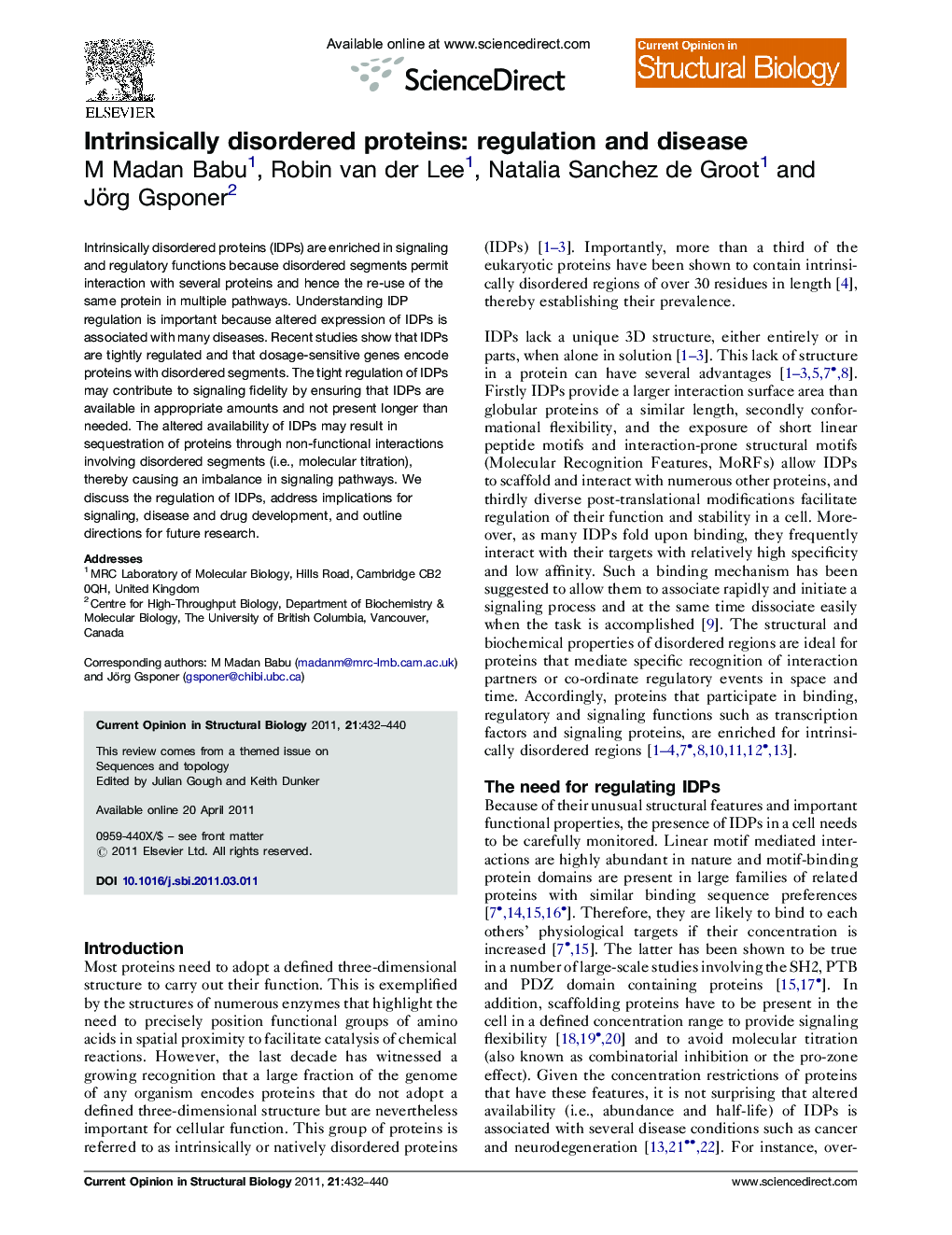| Article ID | Journal | Published Year | Pages | File Type |
|---|---|---|---|---|
| 1979163 | Current Opinion in Structural Biology | 2011 | 9 Pages |
Intrinsically disordered proteins (IDPs) are enriched in signaling and regulatory functions because disordered segments permit interaction with several proteins and hence the re-use of the same protein in multiple pathways. Understanding IDP regulation is important because altered expression of IDPs is associated with many diseases. Recent studies show that IDPs are tightly regulated and that dosage-sensitive genes encode proteins with disordered segments. The tight regulation of IDPs may contribute to signaling fidelity by ensuring that IDPs are available in appropriate amounts and not present longer than needed. The altered availability of IDPs may result in sequestration of proteins through non-functional interactions involving disordered segments (i.e., molecular titration), thereby causing an imbalance in signaling pathways. We discuss the regulation of IDPs, address implications for signaling, disease and drug development, and outline directions for future research.
► Altered expression of intrinsically disordered proteins (IDPs) has been associated with disease. ► Most IDPs are tightly regulated and dosage-sensitive genes tend to encode IDPs. ► Tight regulation of IDPs minimises non-functional interactions, contributing to signaling fidelity. ► Altered IDP availability may cause an imbalance in signaling pathways by molecular titration. ► The new understanding has implications for signaling, disease and drug development.
